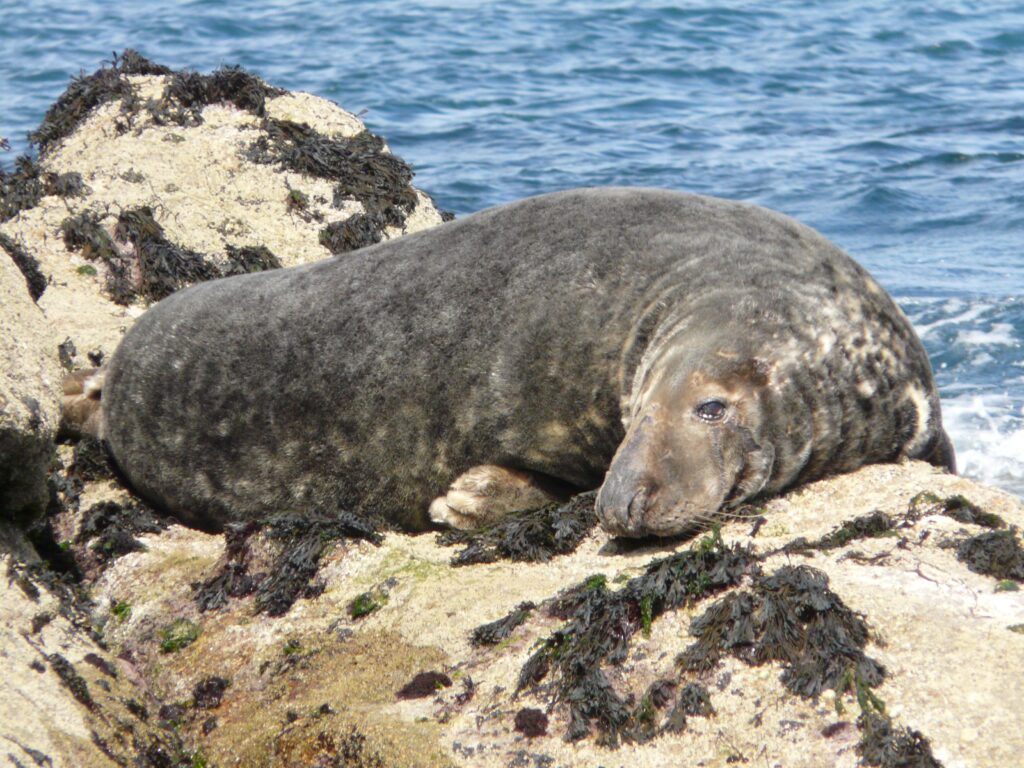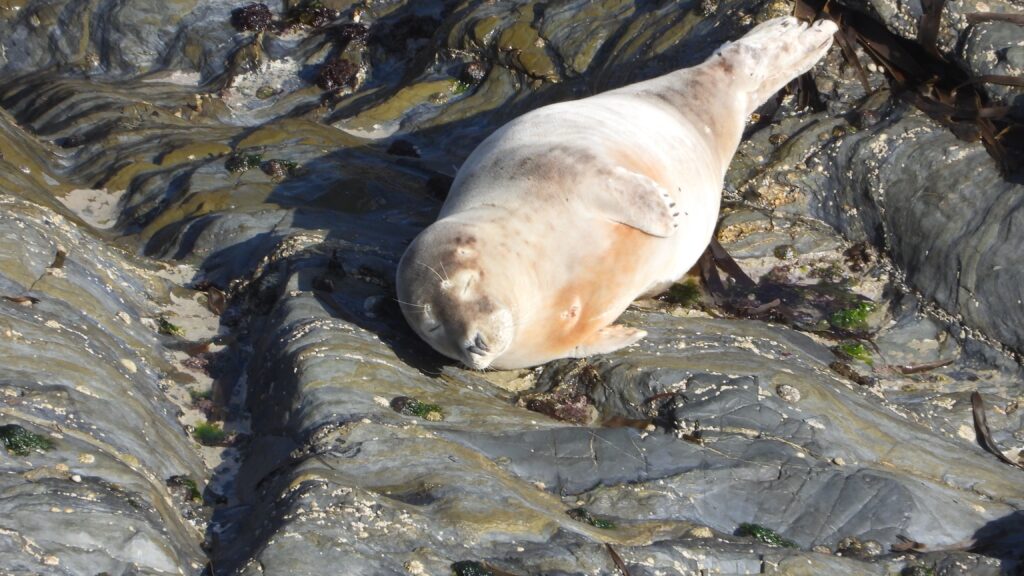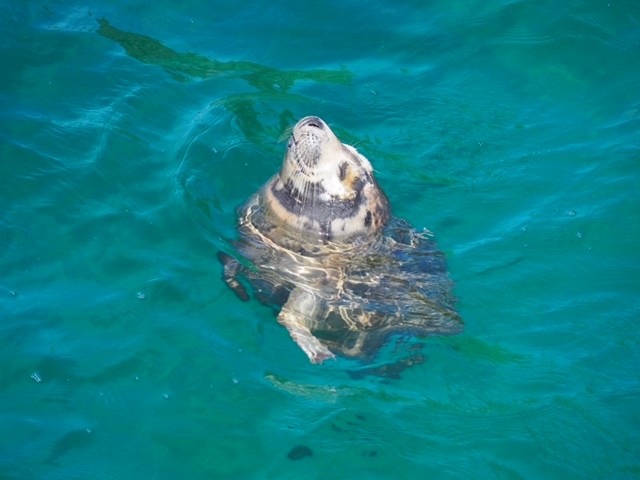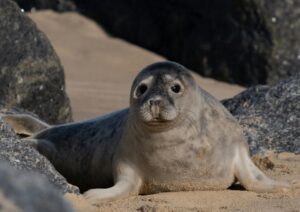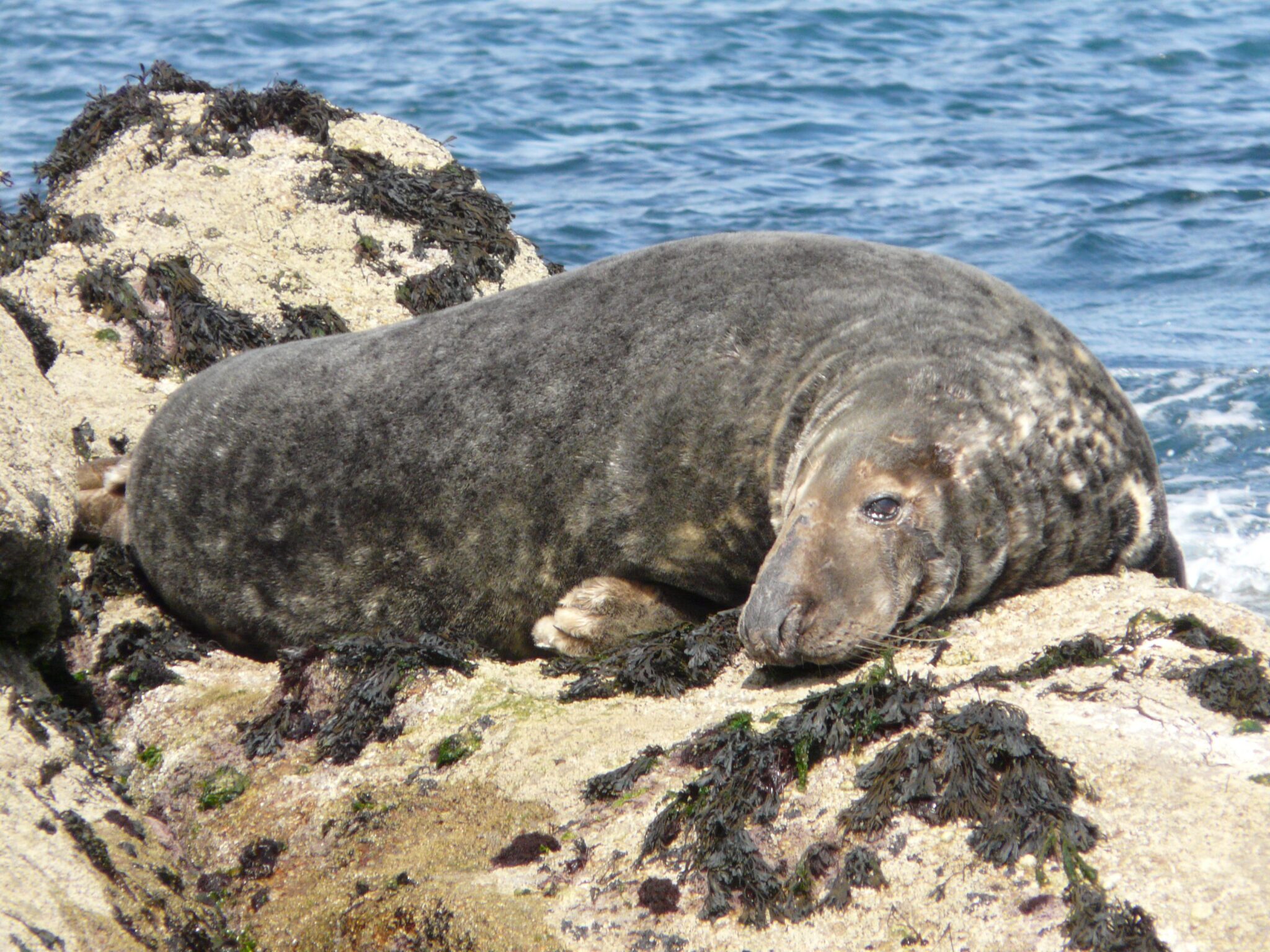Devon’s coastal waters are home to a wide range of marine mammals, including whales, dolphins, porpoises, and seals, all of which are integral to the county’s rich marine ecosystem. While some speciesA group of similar organisms that can breed and exchange gen... More, like minke whales and pilot whales, are more commonly found in deeper offshore waters, others such as bottlenose dolphins, common dolphins, and harbour porpoises are frequently seen close to shore, including in bays and estuaries. Seals are particularly associated with intertidal habitatsThe natural environment in which an animal, plant or other o... More, where they hunt, rest, and haul-out onto beaches and rocky shores.
The UK has two species of seal: grey seals (Halichoerus grypus) and harbour seals (Phoca vitulina), also known as common seals. Grey seals are larger and can be identified by their more dog-like faces.
Seals need remote, quiet beaches and islands as haul-out areas, where they can rest, breed, digest food, moult and socialise throughout the year. Although the two species can use the same sites, they usually prefer to use separate areas.
Seals have a varied diet that includes fish, crabs, lobsters, shrimp, squid, cuttlefish, and octopus. While they are opportunistic feeders and eat what’s available, they tend to prefer small bait fish such as sandeels and dragonets.
Devon’s seal populations have rebounded from historic lows, particularly following the introduction of legislation such as the Conservation of Seals Act in 1970. Despite this, grey and harbour seals remain vulnerable and require ongoing protection. See Key pressures and opportunities below.
Both species are found in Devon’s coastal waters and are listed as Devon Species of Conservation Concern. Devon, however, is particularly significant for grey seals, which are more commonly seen in the region. Grey seals breed locally, with well-established haul-out sites near Lundy Island and the Dart Estuary and are therefore designated as a Focus Species. Populations of both species will benefit from the actions set out below.

